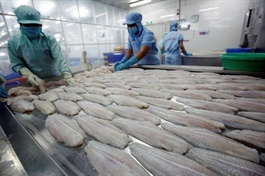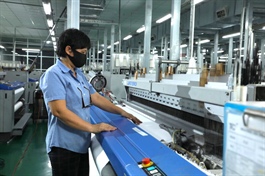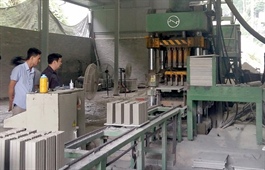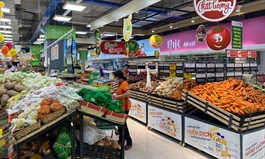MoIT tightens im-export activities of strategic products
MoIT tightens im-export activities of strategic products
Tightening imports of goods that Vietnam has abundant supplies is the right move, especially when the pandemic is wreaking havoc on the economy.
The Ministry of Industry and Trade (MoIT)’s recent decision to tighten import-export activities of strategic products is seen as a much-needed “vaccine dose” to help domestic production overcoming current Covid-19 impacts.
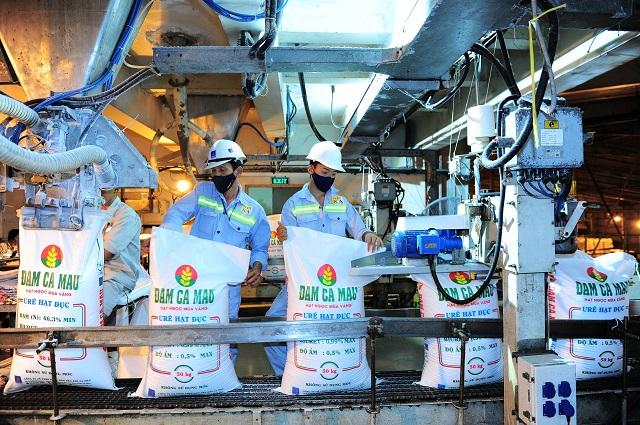
Production at Ca Mau Fertilizer Plant. Photo: Quang Minh
|
Under directive No.10/CT-BCT on August 23, the ministry noted that closer supervision is necessary for key products having significant impacts on the economy, including petroleum products, coal, steel, sugar, or fertilizers.
In recent days, imports of petroleum products, coal, or rice have been surging despite the high local output of such items, fully able to meet domestic demand.
On the contrary, there are products with high local consumption demand such as steel or fertilizer but are currently being prioritized for exports, in turn affecting the supply-demand balance and subsequently market prices.
The MoIT requested local producers and business associations to prioritize the domestic market before turning to exports.
In this regard, Acting General Secretary of the Vietnam Sugar and Sugarcane Association (VSSA) Nguyen Van Loc said the Covid-19 pandemic caused a plunge in consumption demand for sugar, and subsequently business performance of local sugar producers.
“The ministry’s move to tighten imports of strategic products, including sugar, is at the right timing to aid the recovery of domestic production,” he added.
Statistics from the VSSA revealed Vietnam imported a record volume of sugar in the first half of 2021 of over 781,000 tons, up nearly 100,000 tons compared to the whole year of 2020.
Sharing the same view, Vice Chairman of the Vietnam Fertilizer Association (VFA) Phung Ha said the directive is of significance for the local farmers as prices of urea and diammonium phosphate (DAP) fertilizers have risen sharply by 62% and 54%, respectively, since late 2020 to around US$435-440 per ton, the highest since 2015.
“A focus on the domestic market would help ensure sufficient supplies of fertilizer for the farmers and support agricultural development,” Ha noted, adding the move will prevent fertilizer prices from surging during this Covid-19 period.
While the majority of fertilizer producers have given assurance of their capabilities to meet domestic demands, Ha called for greater transparency in production capacity and inventories from local firms.
The hand-on approach required for customer benefits
Economist Nguyen Tri Hieu told The Hanoi Times that the MoIT’s decision demonstrated the necessity to focus on support for the domestic market at a time when the pandemic is wreaking havoc on the economy.
While tightening imports of goods that Vietnam has abundant supplies is the right move, Hieu called for a thorough review for each product to ensure the benefit of customers.
“There should be a hand-on approach for products with different characteristics and prices so that both domestic consumption and trading activities continue to thrive,” he said.
In long term, the Director of the Central Institute for Economic Management (CIEM) Tran Thi Hong Minh called for local enterprises to streamline operations for cost optimization and keeping affordable prices for customers.
“The pandemic and subsequent social distancing measures are causing a surge in production prices, so this would be a huge challenge for businesses,” she added.
“Keeping trade balance, promoting domestic production and consumption are essential to support the economy at this difficult moment,” Minh stated.








